Criminalizing Dissent, FBI Intrusion, Surveillance, Targeting Muslims, Truth to Power
Podcast: Play in new window | Download
Updates:
—-
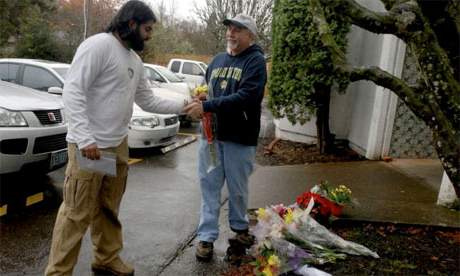
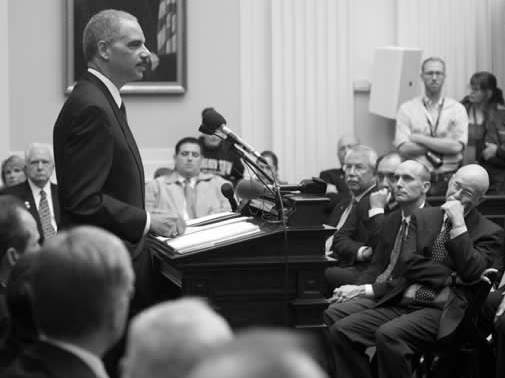
Holder Calls Terrorism Sting Operations ‘Essential’
US Attorney General Eric Holder delivered a 20 minute speech last week at the annual dinner of Muslim Advocates a national legal advocacy and civil rights organization. While speaking to a room of nearly 300 Muslim community leaders, Holder defended the sting operation in the Oregon bombing case and called it a “successful undercover operation.” The room fell silent. Holder continued by saying if you think its entrapment, you simply don’t have the facts straight.
Farhana Khera president of Muslim Advocates and a previous guest on Law and Disorder, criticized Holder’s comments saying the FBI is getting people involved with terrorism who wouldn’t have otherwise and resources are being diverted that could be used for actual threats. Holder continued to justify the counter terrorism techniques including sending informers into mosques to find a would-be terrorists and creating elaborate sting operations.
We’ve looked into some of the “undercover operations” and in those cases informants were used, often immigrants offered large sums of money, or plea deals for whatever crime they committed if they agree to work with the FBI. Those cases include the Newburgh Four, the Fort Dix Five and Yassir Aref in Albany. The sting operations create fear among Muslim communities and help prop up the wars raging in Afghanistan, Pakistan, Yemen and Iraq.
Dalia Hashad:
- There are 3 things that need to happen for someone to be entrapped by law enforcement.
- The idea of committing the crime had to come from government agents, not from the person accused of committing the crime. The government agent persuaded the person into committing the crime.
- The person wasn’t willing to commit the crime before the government agents spoke to them.
- These cases look the same because the FBI go after the same type of guy.
- I don’t like to get into the details of these cases because the narrative is controlled by the FBI.
- Eric Holder had no business being invited and headlining the event.
- Eric Holder Entraps at Muslim Advocates Dinner
- The FBI has more than 100 Joint Terrorism Task Forces, which includes more than 10 thousand FBI agents.
- They partner with other agents, even IRS agents.
- We basically have law enforcement agents out there spying on people who’ve done nothing wrong.
Zaher Billoo:
- I went to this dinner thinking, what are people going to be talking about, are people going to be afraid of hate crimes? People were more worried about the FBI’s tactics than anything.
- The concern is, instead of getting them the help that they need, and preventing an incident and hopefully bettering the community for that, what we’re seeing is the FBI converting them into operational terrorists
- One of the troubles of the war on terror is that we can’t prove whether its successful or not but we want to continue to spend money on it.
- This type of incident justifies that type of offense. The counterproductive measure here is that it puts the community on guard.
- Instead of building relationships with the community they’re trying to work with, they’re burning bridges. This conversation about informants, not knowing who you can trust or who you can candidly speak with, is reminiscent of some of the regimes that people were escaping.
- It’s nothing new. We continue to fall into these patterns.
- An important thing for us as activists and advocates for the community is to insure we’re making these parallels and building coalitions based on that.
- In this last year, people have started to say that it feels as though it’s as bad here as it was a year ago.
- The anti-Muslim sentiment is stronger now in 2010 than it was in 2001.
Guest – former Law and Disorder co-host, Dalia Hashad, attorney and independent consultant specializing in human rights and civil rights. She has run programs at Amnesty International and the ACLU, and she has served as a human rights legal adviser in the Occupied Palestinian Territories. At Amnesty International, Ms. Hashad was the Director of the USA Program, focusing on racial profiling, criminal justice and national security. She also served as AIUSA’s policy specialist in global identity discrimination, addressing issues of race, sexual orientation, religion and gender.
Guest- Attorney Zahra Billoo, executive director of CAIR San Francisco Bay Area CAIR ( the Council on American-Islamic Relations.) Zahra started as an intern for a local chapter of the California Faculty Association, a labor union for California State University (CSU) faculty members. Zahra has also worked as Field Organizer for the Service Employees International Union, and was awarded Peggy Browning Fund Fellowship to work with the National Employment Law Project. Zahra graduated Cum Laude from California State University, Long Beach with a B.S. in Human Resources Management and B.A. in Political Science. She completed her law degree at the University of California, Hastings College of Law.
———-
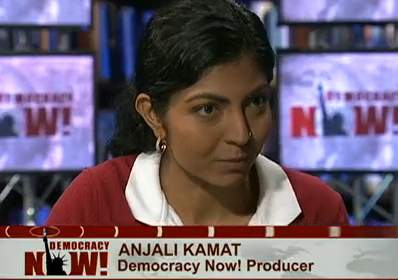
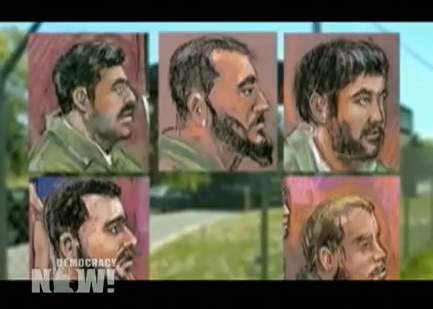
Entrapped, a documentary film exposing the FBI
We’ve discussed the many cases of FBI entrapment here on the show and we are delighted to have with us Big Noise film maker and producer for Democracy Now, Anjali Kamat. Anjali had recently finished the film titled, Entrapped, a documentary examing the role of the FBI and government agencies funding and entrapping people by infiltrating specific ethnic and religious communities. She had traveled through Muslim communities in New York and New Jersey interviewing families of those Muslim men arrested on terrorism charges. Recent cases such as the Fort Dix Five, the Newburgh Four and Yassin Aref in Albany are highlighted in the film.
Anjali Kamat:
- I did the film as a piece of investigating reporting for Democracy Now along with from Big Noise Films. It’s available at Big Noise Films and Democracy Now DVD
- We had a screening at a restaurant off of Coney Island Avenue, hosted by the Coney Island Avenue Project.
- When these cases come about, they’re often talked about as sting operations. The FBI has been doing undercover work and they discovered this terrorist plot.
- They’re on the evening news, talking about how much safer we all are now as a result of the FBI’s excellent work.
- When you dig a little deeper you realize it’s not really a sting, in most cases. It can be called entrapment.
- Informants: In the cases I looked at, there was a Pakistani immigrant and an Egyptian immigrant, they are offered large sums of money, offered at times a plea deal for whatever crime they committed if they agree to work for the FBI.
- There are 3 cases I looked at, 3 out of dozens of cases. The first case took place in Albany in 2004 that involves a Bangladeshi pizza owner and a Kurdish Imam. They were both convicted and their prison time was reduced from 30 years to 15 years, because the case was very thin and there was an outpouring of community support.
- The second case is the Ft Dix Case, which took place in Pennsylvania. All five of the men were convicted. They are serving life sentences. Four out of the five men were ethnic Albanians from Macedonia. They were construction workers, their father had a roofing business. The fourth was a Palestinian American. Informant encouraged Palestinian American to download more and more jihadi videos.
- These videos are key because they are what was shown at the trial to the jury. The third case, the sentencing hasn’t happened yet. The Newburgh four.
- On the domestic front it allows the government to show its being tough on terror at a time when there is no evidence of where Osama Bin Laden is. At a time when the democrats seem very weak on a number of fronts.
- Another use of this is to create fear among Muslim communities. Now there’s a great sense of doubt whenever someone new comes into the community. Could this person be a government informant?
- It helps justify the wars that are continuing abroad.
Guest – Anjali Kamat, independent radio and print journalist from south India. She has lived in Egypt and Jordan and reported on movements for justice across the Middle East and South Asia. Her work has appeared in Corpwatch, Left Turn, and Samar magazine, and national newspapers in India and Egypt (The Hindu, Frontline, Outlook, and Al-Ahram Weekly). In addition to producing Democracy Now!, she co-hosts and co-produces a weekly radio show on WBAI called Global Movements Urban Struggles.
——————————————————–
CIA Sponsored Terror, FBI Intrusion, Human Rights, Surveillance, Targeting Muslims, Torture, Truth to Power
Podcast: Play in new window | Download
Updates:
—
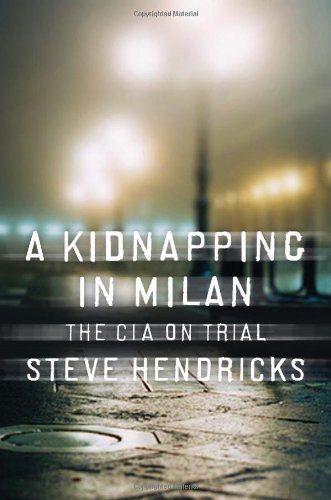
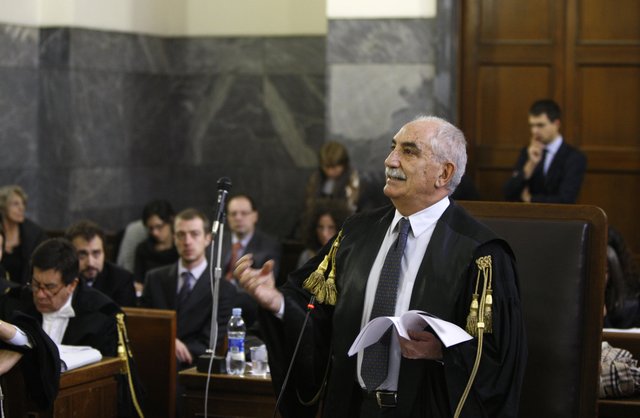
A Kidnapping In Milan: The CIA On Trial
A Kidnapping In Milan: The CIA On Trial is the title of Steve Hendricks’ new book. It is a fast paced account of the realities of counter terrroism. Hendricks gives the reader a beginning to end view of international Islamist terrorist networks in Europre while examining the questions of justice and the rule of law. He writes in detail on the February 2003 disappearance of the radical imam Abu Omar and how under the leadership of prosecutor Armando Spataro, Omar was kidnapped, and sent to be tortured in Egypt. Hendricks traces Omar’s roots in the jihadist world of the Middle East and his travels to Pakistan, Albania and eventually the rundown fringes of Milan. Rivalries, mistrust and bad communication is chronicled amid the CIA, the FBI and the Italian counter terrorism agencies as operatives snatched Abu Omar from the streets of Italy.
Steve Hendricks:
- The Italian counterterror police had this imam, Abu Omar under tight surveillance, under suspicion of terrorism. He was one of the ring leaders of a terrorist cell. They were about a month away from arresting him. But one fine day in February 2003, he sets off for his mosque and disappears.
- The CIA had grabbed him off the street literally at high noon. They roughed him up, gagged him, drove him several hours across northern Italy –sent him to Cairo were for months and months he was savagely tortured.
- The Muslim Brotherhood, which really might thought of as the godfathers of radical Islam, got its start in Egypt and toehold in Alexandria. Islam is not going to be re-born simply on its goodness, we have to fight for it.
- The Egyptian authorities cracked down on the radicals and a great number of them fled all over the world, they scattered. Europe was tolerant of foreigners, Italy was one of those countries.
- Abu Omar was tortured for about a year and then they let him out and said don’t talk about it.
- Armando Spataro is this charismatic figure. He did his formative work as a magistrate prosecuting terrorists of the left.
- When the kidnapping in Milan (by the CIA) happened on his watch, he treated it like anything else. He put his foot down on the rule of law.
- SIM Card – Subscriber Identity Module. It’s not just reading the radio waves, it’s in constant contact with the cell tower back and forth. Most cell companies keep record of those interactions. What these kidnappers sloppily did is use their cellphones like teenagers.
- The Italian prosecutors were able to find these kidnappers, they were able to track their movements everywhere they went. Armando Spataro eventually brought charges against 25 CIA agents and one US Air Force Colonel that coordinated the arrival of agents at Aviano Air Base.
- 23 of the 26 of the accused were convicted of kidnapping. They recieved five to eight years depending upon their degree of involvment. What moved me to write this book, over everything was outrage over our inhumanity.
- America has been conducting renditions for about a century.
Guest – Steve Hendricks, a freelance writer living in Knoxville, Tennessee, and Helena, Montana. He is the author, most recently, of A Kidnapping in Milan: The CIA on Trial. His previous book, The Unquiet Grave: The FBI and the Struggle for the Soul of Indian Country, made several best-of-the-year lists in 2006.
—

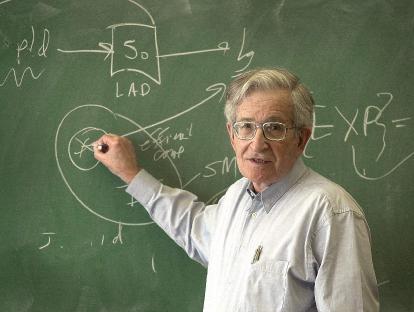
Noam Chomsky – Gaza in Crisis: Reflections on Israel’s War Against the Palestinians
Here on Law and Disorder we’ve chronicled the events of Israeli forces in Gaza and the West Bank. Today we’re delighted to have with us Noam Chomsky, one of the world’s foremost social critics, institute professor emeritus in the MIT Department of Linguistics and Philosophy and author of many books including Failed States and Hegemony or Survival, but we talk with him today about his latest book Gaza in Crisis: Reflections on Israel’s War Against the Palestinians. Noam Chomsky wrote Gaza In Crisis with Ilan Pappé, professor of history at the University of Exeter in the UK. This book surveys Israel’s recent attacks on Gaza from Operation Cast Lead to the Gaza Freedom Flotilla in a very sobering analysis.
Noam Chomsky:
- Let’s start with wikileaks. One of the interesting cables from the Tel Aviv embassy and it was to Clinton.
- It was giving her talking points, about the attack on Gaza, and it tells her Israel had to attack on December 2008 in self defense because Hamas had violated the truce.
- In December 2008 Hamas called for a renewal of the truce that Israel had broken. Israel considered it and rejected it. I should say US/Israel because these are joint activities.
- The fact that this can pass without comment, tells you quite a lot.
- In the whole wikileaks episode, in my opinion is the remarkable fact is the absolute contempt of democracy that’s revealed by the embassies.
- The most critical issue is did Israel have any right to use force in the first place? Any right?
- Why have a border cutting Galilee in half?
- The only way I know how to proceed is to get the United States to join the rest of the world and stop its rejectionist opposition to the overwhelming international consensus, agree to a two state settlement.
- The strongest support for Israeli crimes is coming from the business world.
- The most rabid supporter of Israel in the media is the Wall Street Journal. They’re not part of AIPAC, that’s the business world.
- US military intelligence are tightly integrated with Israel. Israel destroyed secular Arab nationalism, that’s when US / Israeli relations took off in their current form.
- It’s about expansion of settlements. Israel already controls 42 percent of the West Bank.
- The issue is the settlements, they are all illegal.
- It designed so that there will be no Palestinian self determination.
Guest – Noam Chomsky, n American linguist, philosopher, cognitive scientist, and political activist. He is an Institute Professor and professor emeritus of linguistics at the Massachusetts Institute of Technology. Chomsky is well known in the academic and scientific community as one of the fathers of modern linguistics, and a major figure of analytic philosophy. Since the 1960s, he has become known more widely as a political dissident and an anarchist, referring to himself as a libertarian socialist. Chomsky is the author of more than 150 books and has received worldwide attention for his views, despite being typically absent from the mainstream media.
————-
Civil Liberties, Criminalizing Dissent, FBI Intrusion, Human Rights, Surveillance, Targeting Muslims, Truth to Power
Podcast: Play in new window | Download
Updates:
Oklahoma:Voters Approve Sharia Law Ban
—
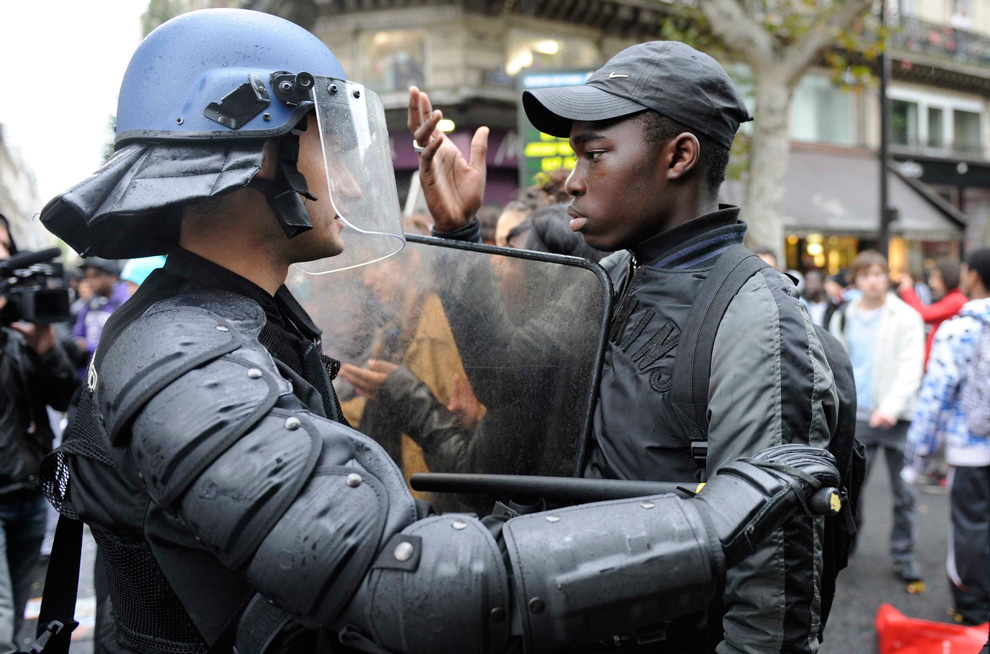
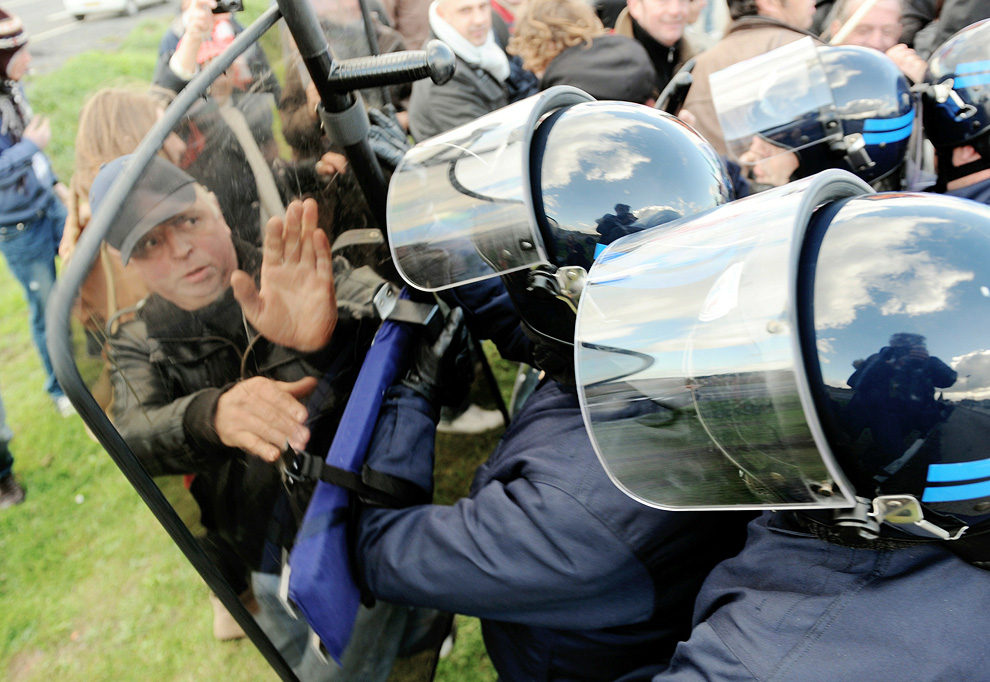
French Labor Activism, US Labor Passivism
In the United States, unemployment rose from its level in 2008 (5.8 %) to its level in the second quarter of 2010 (9.7 %). These are numbers never seen before. However, by comparison, French unemployment rose from 7.4 % in 2008 to 9.2 % in the second quarter of 2010. This data from the Bureau of Labor Statistics show unemployment had risen further and faster in the US than in France across in the last 3 years. This is found in Economics Professor Rick Wolff’s article French Labor Activism, US Labor Passivism.
Yet French workers are in the streets by the millions demonstration against anti-worker “austerity policies.” Government policies that could cut workers payroll or the services that are provided to the public. Meanwhile US workers are taking it sitting down, there’s no resistance. In California, there’s now a 22 percent unemployment and it takes the average unemployed American about 35 weeks to find a job. US states and towns cut payrolls and public services and as President Obama’s special commission gets ready to reduce social security benefits to the American people. Consider that in September 2010, according to the BLS, while the total US private sector added 64,000 jobs, state and local governments fired 77,000 people.
Rick Wolff:
- This is a tsunami of a political movement. All the six different organizations of trade unions have unified in organizing and moving these demonstrations. They haven’t unified on anything for a long time. They’ve drawn in students.
- Sarkozy almost in a way provoked the students to join the demonstrations in huge numbers.
- The students quickly understood that if the older workers stayed in their jobs an extra 2 years, those are jobs they’re not going to get. 70 percent of the French people support demonstrations. What we see now is a minority government, isolated, entrenched.
- If you want to see a movement that is doing something, mobilizing mass opinion, you got it.
- If you read what the French are saying, it’s this. We’ve already paid for the crisis, with unemployment, lost homes, insecure jobs.
- We’ve done our part, we’ve accepted that. We’ve drawn our line in the sand. We’re not gonna pay for fixing this mess from which have suffered. Why is this relevant? It is exactly like the United States.
- The atrophy of left here is much more palpable, then what happened there. We’ve had a much worse decline of our trade union movement then they did.
- We have to create anew the organizations that could bring people together into an effective coalition. The last thing we need is 800 single issued groups, cultivating its own garden and not talking to the other.
Guest-Richard D. Wolff, Professor of Economics Emeritus, University of Massachusetts, Amherst where he taught economics from 1973 to 2008. He is currently a Visiting Professor in the Graduate Program in International Affairs of the New School University, New York City. He also teaches classes regularly at the Brecht Forum in Manhattan.
—
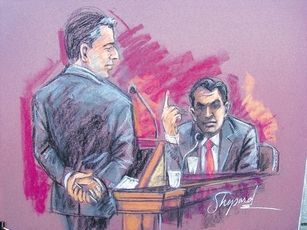
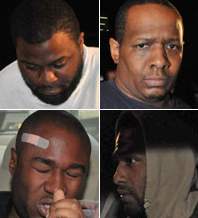
Entrapment and Conviction of the Newburgh Four
Last week, the four men accused of planting bombs outside synagogues in the Bronx and plotting to fire missiles at military planes were convicted in a case that was the test of the entrapment defense. The jury of the Newburgh 4 trial convicted James Cromitie, David Williams, Onta Williams and Laguerre Payen of plotting to bomb synagogues and shoot military planes. Cromitie and David Williams were also convicted of conspiring to kill officers and employees of the government. Sentencing is scheduled for March. The four face life sentences.
It wasn’t difficult for Shahed Hussain, a government agent provocateur who was facing incarceration, to offer food, money, marijuana, cars and vacations to the four men and ultimately coercing them to collaborate on so-called “terror plots.”
According to a press release by Project Salam (Support And Legal Advocacy for Muslims) The defendants had absolutely no intention to commit any terrorist crimes until the FBI agent provocateur, Shahed Hussain, promised them each $5,000––and in one case $250,000––if they did his bidding. He posed as a rich man who could give the defendants everything they’d ever wanted. He chose the targets, he told them how it would all work, and the FBI paid for everything. The four defendants were petty criminals, none of whom had a car or even a driver’s license. When the so-called leader, James Cromitie, decided to back away from Hussain’s scheme and refused to answer his calls for about a month, Hussain said, “Brother, I told you you could have $250,000, but you don’t want it.” Cromitie’s response: “OK, I’m in.”
Attorney Steve Downs:
- We were really surprised, we thought the edge had been reached here. They (Newburgh Four) were convicted of participating in this plot that had been cooked up, manufactured by the FBI
- These are four individuals who had no way to undertake any kind of terrorist plot. They had no automobile, no driver’s license, no money, no training, they had nothing. The FBI simply provided everything, including driving them to a spot where all they had to do is deliver a package, outside of building to complete this crime which the FBI concocted. There’s no other way to look at it.
- There is the pre-disposition idea and that comes from the ready-response argument. That has simply been misused.
- Example: Would like a loan of 5 thousand dollars, or a gift of 5 thousand dollars? Then only afterward you find out this “gift” has to do with money laundering.
- In the meantime, the person is being asked to make a ready-response. In the Newburgh case, Shahed Hussien, the informant, suggested an illegal plot. The main person he was working on James Crominic, essentially backed out of it.
- There’s a six week period that James didn’t correspond with the government at all. Then finally, Shahed called and said look you’ve got 250 thousand dollars here if you go through with this.
- These people had been somewhat exposed to Islam in prison, but didn’t know much about the religion.
- One of them had a crack-cocaine problem, another had mental problems, very serious mental problems.
- You could’ve gone to any place in upstate New York and found somebody who would grab at a deal like this.
- It was a lot of money for potentially very little activity.
- The building that was going to blow up would be unoccupied, the plane was on the ground without people in it.
- They were paid to make a political statement and not to kill anybody.
- These things are very very cleverly crafted by the FBI.
- Because people don’t know much about Islam, the government is free to play upon stereotypes and fears that people have.
Guest – Attorney Steve Downs, retired chief attorney with the New York Commission on Judicial Conduct, is a founder of Project SALAM (Support and Legal Advocacy for Muslims).
———————————————
Civil Liberties, Criminalizing Dissent, Extraordinary Rendition, FBI Intrusion, Habeas Corpus, Human Rights, Military Tribunal, Supreme Court, Surveillance, Targeting Muslims, Torture
Podcast: Play in new window | Download
Updates:
- Anwar Al-Aulaqi Case – Drones Targeting US Citizens – Obama Wants To Dismiss CCR/ACLU Case
- CCR Guantanamo So Called Suicide Cases
- Supreme Court Will Not Review Case On Feds Wiretapping Guantanamo Lawyers
- Bombing of the USS Cole – Could Prosecutors Use The Fruit From the Poisonous Tree?
—-
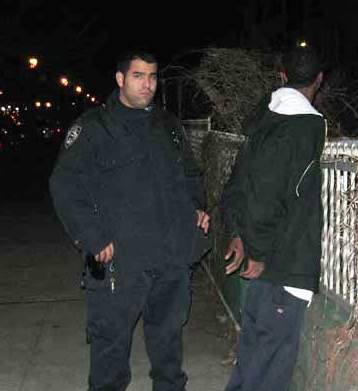
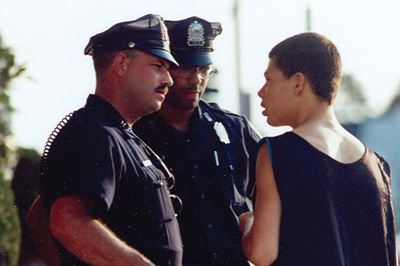
NYC NLG Street Law and Racial Profiling Program
Today we’re joined by Paula Segal and Gabriela Lopez with the New York City Lawyers Guild Street Law Clinic Program. The project sends groups of attorneys to conduct “Street Law” workshops with a range of students in high school. We’re also joined by students from the Aarturo A. Schomburg Satellite Academy High School who were part of the street law classes.
Street Law Students:
- In my neighborhood it’s really common for the Police to bother you for no reason. I don’t think they had the right to go into my pockets unless they had reasonable suspicion. This happens at least 3 times a week.
- One time they took me into the precinct, took my picture, ran my fingerprints.
- I was getting off the train and these two big police men were getting off the train and they stopped me. They said we have her on the walkie-talkie. This women said take off your sneakers. She kept asking, where is it? Where is it? That’s when she started to get physical and she lifted up my shirt. “If you don’t f-in’ tell me where it’s at, I’m going to strip search you. It happened on Elder Avenue, next to the 6 train.
- They say no, we’re not going to touch you, then he throws me on the car.
- You guys are unfolding my socks right now, and I don’t like this. There’s a certain way that I fold my socks.
- After they find nothing, they say you should change your attitude. I said, you should change your attitude.
- A lot of cops judge character, when I see cops, you have to give them an expression. Hey look I’m out here, I’m not tryin to get in that car.
- I’m thinking about the cops catching the real villans. If you’re really guilty you’re going to get hassled, if you’re not guilty,then you can be free. The advice I get from the street law project is not consenting to the search.
- From my knowledge, the cops need a certain amount of arrests at the end of the month, so they’ll pick on anybody. They curse a lot. Undercover cops, they’ll probably have on a hoodie, try to fit in with everybody else, it just don’t work.
- Law Student Paula Segal: We focus on giving people tools to walk away, to avoid arrest.
- Law Student, Street Law Coordinator Gabriella Lopez: Last year we went to more than sixty different sites. Sixty to Seventy different trainings that occured last year.
- Email the Street Law Team – streetlawteam@gmail.com
Guests – Paula Segal and Gabriela Lopez with the New York City Lawyers Guild Street Law Clinic Program. Aarturo A. Schomburg Satellite Academy High School Students: Charisma Whaley / Joseph Campbell / Kiara Avila / Stephanie Colon / Jonathan Jeffries.
—-
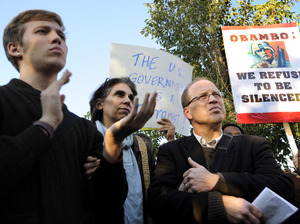

Grand Juries Historically and the Minneapolis / Chicago FBI Raids
A total of 12 people were served with subpoenas during last months FBI raids in Minneapolis and Chicago. The FBI targeted anti-war peace activists and key organizers of demonstrations and marches who have been asked to appear before a grand jury. What is a grand jury? Historically, a grand jury was supposed to be citizens coming together to determine if charges should be filed criminally against someone. Today, it’s very different. It’s mostly a rubber stamp for what the prosecutors want. If you refuse to testify at a grand jury, you can be taken to a judge to answer questions. If you refuse to answer those questions you could be put in jail.
Margaret Ratner-Kunstler:
- If you were subpoenaed before a grand jury in 1968 and you asserted your grand jury right, then that really was the end of your participation in the grand jury.
- You asserted immunity and if you we’re given immunity, you couldn’t be indicted.
- Immunity: Nothing you say could be used against you, but anything you testified about could not be the subject of a criminal indictment against you. Your words could not be held against you, or the fruits of those words. But it’s so easy to get around that, by a prosecutor saying, this didn’t come from this.
- If you then refused to testify given this minor immunity, you could be subject to imprisonment.
- If you refuse to testify you’re brought back before the judge and the judge then holds you in “civil contempt.”
- The grand jury is usually about 18 months. The grand jury in Chicago is a special grand jury which means it’s twice as long.
- That’s important because if you’re held in civil contempt, the keys to the jail are in your pocket. You’re in jail for as long as you refuse to testify.
- If you say something you could wave your fifth amendment right by already saying something.
- The recent FBI raids represents the tremendous see-change we have in terms of the ability for people to actively oppose this government’s policy.
- In 1983, there were many groups in this country who were joining forces with progressive groups in Central America. You had the Committee in Solidarity With the People Of El Salvador.
- Each of the 11 individual persons subpeoned wrote letters to the Attorney General saying that they would assert their fifth amendment right and that they would not testify.
- If they can’t get you on a federal charge it’s often that they’re looking for a mistake you made in conversation, even an informal conversation with a federal official.
Guest – Magaret Ratner-Kunstler, an attorney in private practice. As education director at the Center for Constitutional Rights, she originated the Movement Support Network and authored “If an Agent Knocks.” Kunstler is the President of the William Moses Kunstler Fund for Racial Justice, a foundation established in 1995 in the memory of her late husband to combat racism in the criminal justice system.
———————
CIA Sponsored Terror, Civil Liberties, Criminalizing Dissent, FBI Intrusion, Gaza, Green Scare, Human Rights, Prison Industry, Surveillance, Truth to Power, Uncategorized
Podcast: Play in new window | Download

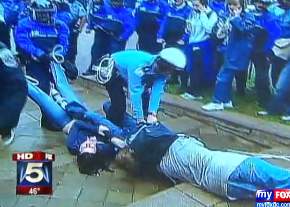
Lawyers You’ll Like Series: Mara Verheyden Hilliard Part II
Today we’re joined by attorney Mara Verheyden Hilliard co-founder of The Partnership for Civil Justice Legal Defense & Education Fund in the second part of our Lawyers You’ll Like series. Mara and her partner Carl Messineo have worked to defend and advance fundamental civil, constitutional and human rights secured by the U.S. Constitution and under law. We talk about her work, and criminalizing dissent, surveillance, data mining, and FBI harassment. A lot of Mara’s work is at the intersection of first and fourth amendment rights, such as the assault on free speech, assembly and misuse of datamining tools. The Partnership for Civil Justice has many victories, and recently a settlement was reached in a class action lawsuit about the illegality of the arrests of approximately 700 protesters and other persons on Saturday, April 15, 2000 in Washington, D.C.
Attorney Mara Verheyden-Hilliard:
- I co-founded the Partnership for Civil Justice in 1994 with Carl Messenio. We decided we wanted to do this work specifically, Constitutional rights, civic justice, public interest litigation.
- We began this work right after we left law school. We undertook some of the longest running protest cases that we had, in particular, the recently settled class action from the April 2000 mass arrests.
- I grew up in Washington DC and I spent my childhood going to civil rights demonstrations, anti-war demonstrations, having our house filled demonstrators. Both of my parents are deeply political people who care very much about civil rights, liberation struggles and womens’ rights.
- The core of the work we do we recognize as the underlying social justice movement.
- The municipalities, the governments, they want these cases to go on as long as possible, they want to fight a war of attrition, because they want plaintiffs to feel they have to take toothless settlements.
- The fact is the law has changed in DC, we’ve changed the way police operate. They can’t use these tactics, these tactics we took apart piece by piece have been removed from the arsenal of the police department in DC.
- The DC police can’t use the trap and detain tactic, they can’t hold people, they have to release them within 4 hours now. They can’t use the wrist to ankle handcuff mechanism against people anymore.
- Police need to have their badges plainly available and visible, they can’t come out in riot gear to first amendment assemblies. Now we’re seeing this effort (FBI) against solidarity activists with the raids and subpoenas. I think it is outrageous, and baseless for the government to be coming in and targeting people for solidarity work.
- It’s also reflective of the huge security apparatus that was put in place under Bush and is being accelerated under Obama. Those beliefs, that hope, that thought, that you can change the direction of the country that you live in, is absolutely true.
- All you gotta do is look at the past history of the United States, all 150 years.
- Recognize that it’s no fault to hope and to think that an elected official is going to do it, but historically the elected official has never been the one to do it.
Guest – Constitutional Rights Attorney Mara Verheyden Hilliard co-founder of The Partnership for Civil Justice Legal Defense & Education Fund. Mara Verheyden-Hilliard is an activist, Constitutional Rights attorney, and the cofounder of the Partnership for Civil Justice. She is also co-chair of the National Lawyers Guild Mass Defense Committee.
——
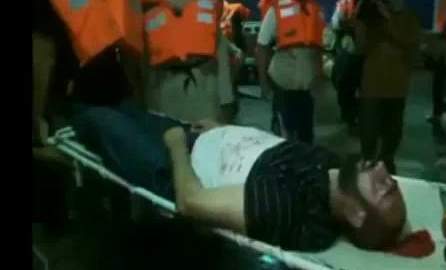
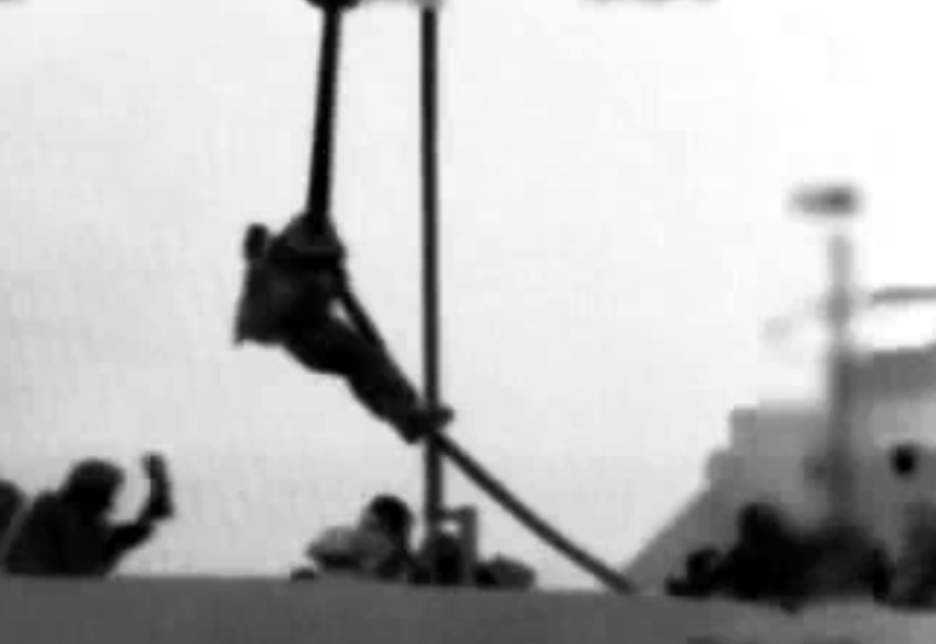
United States Plays Down UN Report on the Gaza Flotilla Attack
A United Nations fact finding mission into the May 31, 2010 Israeli lethal attacks of ships traveling to Gaza, has reported that Israeli forces violated international law, “including international humanitarian and human rights law.” Eight Turkish activists and one Turkish-American were killed in the raid on board the ships attempting to break the Gaza blockade. The UN Human Rights Council’s investigation judged Israel’s naval blockade of the Palestinian territory to be “unlawful” because there was a humanitarian crisis in Gaza at the time. However, the United States criticized what it termed as the report’s “unbalanced language, tone and conclusions.”
The Center for Constitutional Rights, the Free Gaza Movement and the National Lawyers Guild responded to the report and the comments made by the United States at the Council
“Unfortunately, the United States used the opportunity of the Human Right Council’s discussion on the flotilla fact-finding mission’s report to promote its political agenda instead of engaging on the issue of legal accountability for Israel’s illegal blockade of Gaza and the unlawful attack on the Gaza flotilla,” said CCR attorney Katherine Gallagher. “The U.S. must recognize that there can be no peace without justice, and that until it supports accountability for violations of international law–even when violations committed by Israel – instead of a culture of impunity, it lacks the legitimacy necessary to serve as a broker of peace.”
Attorney Katherine Gallagher:
- There were 6 civilian ships and their goal was to both bring humanitarian aid to Gaza which has been under a Naval blockade by Israel for the last 4 years as well as to challenge the legality.
- The United Nations back in June 2010 set up a fact finding mission. The 3 commissioners traveled to London, to Geneva, Istanbul and Jordan to interview passengers. They met with legal experts and others to analyze the evidence they heard.
- The UN fact finding report was submitted last week, 56 detailed pages of what precisely happened that night on those ships on the night of May 31. It was concluded that the blockade is illegal under international law. It found that the 6 ships traveling to Gaza to break the blockade presented no imminent threat to the Israelis.
- The 3 commissioners have experience in international law matters. One had been a judge on the international criminal court. Their conclusions are grounded in law and not political conclusions. They were peaceful protesters preparing for an attack on the ship.
- It’s hard to see what they find as unbalanced. I think the report is carefully written, it’s cautiously written beginning with an analysis of its own mandate. Turkey very much welcomed the report.
- The bulk of the passengers were detained in Israel, at detention sites that had already been established.
- Confiscated property consists of cameras, computer chips, video equipment. It contains electronic equipment that provides first hand evidence of the flotilla passengers activities and then the attack on the ship.
- In the past 4 months Israel has been in possession of that material.
Guest – Katherine Gallagher, Senior Staff Attorney at the Center for Constitutional Rights, where she focuses on holding individuals, including US and foreign government officials, and corporations, including private military contractors, accountable for serious human rights violations. Among the cases she is working on are Arar v. Ashcroft, Matar v. Dichter, Saleh v. Titan and Estate of Atban v. Blackwater.
———

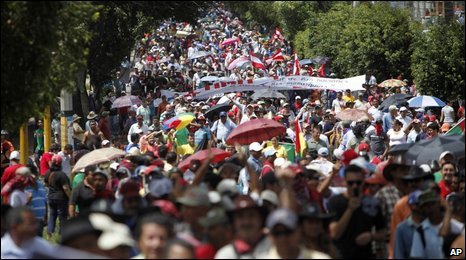
Post Coup Honduran Human Rights Crisis
A human rights crisis continues to get worse in Honduras, more than a year after the June 28, 2009 military coup. People on the front lines that oppose the regime installed after the coup are beaten and illegally detained by the state. Nectali Rodezno, Co-Coordinator of National Front of Lawyers in Resistance Against the Coup in Honduras is among the lawyers dircectly involved in defending those are being abused and whose lives are on the line everyday. To inform people about the ongoing crisis in Honduras, there will be a speaking tour this fall called JUSTICE IN HONDURAS: Witness for Peace Mid-Atlantic Fall Speakers Tour will be November 1 – 22.
Attorney Pam Spees:
- From that moment on you began to see alot of repressive tactics immediately after the coup.
- Immediately, leaders of that resistance were being targeted. There were several key people who were killed in aftermath of the coup. Walter Trochez was a key LGBT activist who was targeted and killed in a very brutal way. You also saw the targeting of labor leaders. The killing continue even in this new de facto administration.
- In March you saw the targeting of journalists. In that month alone, 8 journalists were killed.
- The Honduran judiciary were taking certain steps before the coup to help undermine Zelaya and what he was doing. We’re still learning about how much of this was driven by official US policy.
- Before the coup we had the financial crisis in the US that was effecting food security which was making it difficult everywhere. Zelaya was trying to buffer the Hondurans against this. One of the things he did was raise the minimum wage. He raised it and tied it to the food index.
- The Bolivarian Alliance for the Peoples of Our America
- On June 28, the Honduran resistance has set up its own truth commission, The Alternative Truth Commission. The International Criminal Court is an actor and could investigate and potentially prosecute some of these acts.
- In the US we have the Alien Tort Statute. It’s a very old law that allows non-citizens to bring suit in US courts for violations of international law.
- The courage show by all sectors of this resistance is just incredible. www.resistenciahonduras.net
Guest – Pam Spees, senior staff attorney in the international human rights program at the Center for Constitutional Rights. She has a background in international criminal and human rights law with a gender focus, as well as criminal trial practice.
———————————————————————-
Criminalizing Dissent, Death Penalty, FBI Intrusion, Green Scare, Human Rights, Prison Industry, Supreme Court, Surveillance, Truth to Power
Podcast: Play in new window | Download
Updates:
———-
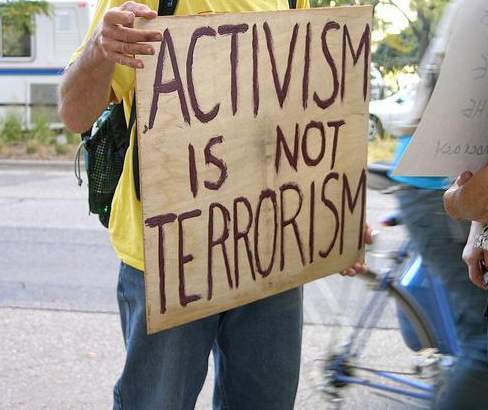

Nationally Coordinated FBI Raids Minnesota/Chicago
Last week the FBI raided six homes in Minneapolis and two in Chicago allegedly searching for links to terrorism. The Minneapolis raids targeted anti-war activists among them, Jessica Sundin, and Mick Kelly. They were key organizers of the big march on the first day of the RNC in 2008. In one Minneapolis home, FBI agents arrived with warrants, searched every room, attic and basement, looking through CDs DVDs, books, and photos. Passports, travel and phone records were among items seized from the homes. The FBI issued subpoenas for the peace activists to appear before a Grand Jury in Chicago on October 12. FBI’s search warrants indicate agents were looking for connections between local antiwar activists and groups in Colombia and the Middle East. NLG HOTLINE – 888-654-3265
Jim Fennerty:
- We’re putting a group of lawyers together from the National Lawyers Guild. We’re speaking to our clients right now about what a grand jury is, how it functions, and they have a right to refuse to testify at a grand jury or not. A total of 12 people were served with subpoenas.
- Humanitarian Law Project decision emboldens the government to push the envelope and see what they can get away with. I have not been told that anyone is a target, and we’re concerned about what that means.
- Technically the Attorney General’s office is not suppose to issue a subpoena to a target unless they get a higher authority to do that. Historically a grand jury was supposed to be citizens coming together to determine if charges should be filed criminally against somebody.
- Now it’s pretty much a rubber stamp for what the prosecutors want. People should be very concerned about going there, because what you say can be twisted around.
- Most cases, people can say they don’t want to testify at a grand jury, they’re going to exercise their fifth amendment rights against incrimination. However, if they offer you immunity and you refuse to testify, you can be taken to a judge, they’ll read the questions to the judge, and ask you to answer them.
- If you refuse to answer them then a judge can hold you in civil contempt and you can be incarcerated for the length of the remaining time of the grand jury. The government is not showing us all their cards, we don’t know where they’re going with this.
- Regarding activism: I’ve seen some unity here I’ve never seen before in my life, where groups that don’t get along, are now rallying around them.
- Do not speak to federal agent, do not lie to a federal agent. National Lawyers Guild Issues New Report on Policing of Protests
Guest – Attorney Jim Fennerty, attorney, activist and National Lawyers Guild member. Jim has been handling activist cases for 38 years.
——-

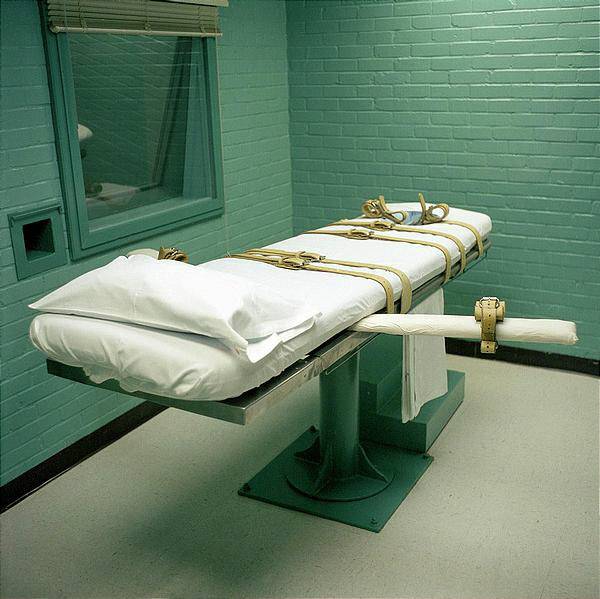
Death Penalty Cases -Virginia / Georgia / California
In late 2009, The American Law Institute which created the intellectual structure for the current capital justice system for nearly 50 years, essentially announced that its project has failed. The New York Times, in one article wrote the institute’s move represents a tectonic shift in legal theory. The article also points out that capital punishment was plagued by problems including racial disparities. We continue to see these types of problems in 3 recent death penalty cases in Virginia, Georgia and California. In Virginia, Teresa Lewis, a grandmother was the first woman to be executed in that state in nearly 100 years. Last week Teresa Lewis was given a lethal injection at 9PM in Greensville prison. Teresa was convicted of hiring two gunmen to shoot her husband and stepson to collect on their life insurance policy. Both gunmen were sentenced to life without parole. Attorneys argued that the court consider a key piece of evidence on Teresa’s behalf. That evidence was a letter from one of the gunmen who killed himself in jail in 2006, in which he claimed full responsibility for the murder plot and suggests he pushed Lewis into it. Lewis also had an IQ of 70.
Last week in a Georgia death penalty case, Brandon Joseph Rhode was found in his cell with his arms and neck slashed days before his scheduled execution by lethal injection. According to reports, his lawyers have pleaded clemency, arguing he suffered brain injury from alcoholism and because his mother took drugs during pregnancy. If executed, he will be the 25th person put to death by the state, the last one was in June. Rhode and an accomplice were sentenced to death for murdering an 11-year-old boy, his 15-year-old sister and their father during a botched robbery in 1998.
In California, a federal and state court judge refused death row inmate Albert Greenwood Brown’s request to block his scheduled execution. Brown and another death row inmate have filed a lawsuit challenging the state’s new lethal injection regulations,saying the procedures were improperly adopted. State procedures have since been revised after a federal judge halted the death penalty in California amid concern that it’s method lethal injection amounted to cruel and unusual punishment.
David Michaels:
- These are two horrible executions. Teresa Lewis had an IQ of 72. She was executed after Governor MacDonald refuse her clemency requests. The judge said she was the head of the serpent in this particular case and he decided horribly to have her executed.
- There’s no deterrent for people with the IQ of 72 or for someone with an IQ of 150. This murder happened in 1992, this execution happens in 2010.
- There are about 3 dozen states that have capital punishment laws. In California, one of the drugs they use for lethal injection has expired and they can’t get anymore.
- LINKS – NCADP / Death Penalty Information Service
Guest – Attorney David Seth Michaels. David has represented clients for 30 years, clients such as prison inmates in Mississippi and Tennessee. He’s worked with Brooklyn Legal Services B and with the Federal Defenders Service Appeals. He is also a novelist, has his own practice in New York. David Michaels’ Blog
—-


Circuit Court of Appeals Throws Out Nigerian Claims Against Shell Oil
It is now up to the Supreme Court to decide if corporations could be held liable in U.S. courts for violations of international human rights law. Recently, a U.S. Appeals Court dismissed a case against Royal Dutch Shell in which the oil company was accused of helping Nigerian authorities violently suppress protests against oil exploration in the 1990s. One judge on the three-member appeals court panel wrote a strong dissent of the majority opinion, calling it “a substantial blow to international law.” In a past interview with attorney Peter Weiss, Peter explained how a 1789 U.S. statute Alien Tort Claim was used to hold multinational corporations accountable for human rights crimes. The case was brought by families of seven Nigerians who were executed by a former military government for protesting Shell’s exploration and development.
Maria LaHood:
- This was a class action brought by the Ogoni people against Shell parent companies and Nigerian subsidiaries.
- They brought the case because Shell had been complicit with the military dictatorship in the nineties.
- They were detaining, torturing and killing people to oppress the grassroots opposition movement to Shell’s environmental degradation. Shell Oil is the US company.
- Basically, two judges went out of their way to find that corporations can’t be held liable for international human rights violations. The result is that corporations can profit from killing and torturing and can’t be required to compensate the victims.
- Hopefully this decision won’t stand. This is the first Circuit to rule like this.
- Unfortunately I think corporations are going to be submitting this decision in their own cases around the country. Hopefully, that won’t be successful. As it stands the decision applies to the Second Circuit, New York, Connecticut and Vermont.
- Even if this decision stands, the court left open and confirmed you can sue individuals. Even here we can sue CEOs and directors of corporations.
Guest – Attorney Maria LaHood has worked on the case Wiwa v. Royal Dutch/Shell, for the torture, detention and execution of Ken Saro-Wiwa and other human rights activists and protesters in Nigeria. Maria LaHood joined the Center for Constitutional Rights (CCR) in 2004. She specializes in international human rights litigation, seeking to hold government officials and corporations accountable for torture, extrajudicial killings, and war crimes abroad.
————————————————————————————————-















